

HRVATSKA CROATIA @









CROATIA @ 1998 FIFA WORLD CUP FRANCE™ - BRONZE MEDAL
CROATIA @ 2018 FIFA WORLD CUP RUSSIA™ - SILVER MEDAL
CROATIA @ 2022 FIFA WORLD CUP QATAR™ - BRONZE MEDAL
CROATIA @ UEFA NATIONS LEAGUE FINALS 2023™ - SILVER MEDAL
Marijan Kustić | HNS President
Zlatko Dalić | Head coach
Croatian Football Federation | About us
Presidents, General secretaries and Head coaches
Croatian football history
International individual awards
Accomplishments & Awards
Croatians on top of Europe and the World
Road to UEFA EURO 2024™
All competitive matches of the Croatia national football team in history
CROATIA @ EURO 2024 | Head coach
CROATIA @ EURO 2024 | Coaching staff
CROATIA @ EURO 2024 | Team
CROATIA @ EURO 2024 | Delegation members, Medical staff & Logistics
Luka Modrić | Captain
Croatian internationals
Home for Croatian team during EURO 2024 | Neuruppin
UEFA EURO 1996 ENGLAND | A masterpiece debut
1998 FIFA WORLD CUP FRANCE | They came, they saw, they amazed the world
1998 GOLDEN BOOT | Davor Šuker
2002 FIFA WORLD CUP KOREA/JAPAN | Three-minute frenzy not enough
UEFA EURO 2004 PORTUGAL | Effort present, reward absent
2006 FIFA WORLD CUP GERMANY | Emotional rollercoaster without a happy-end
UEFA EURO 2008 AUSTRIA/SWITZERLAND | Haunting heartbreak



EURO 2012 POLAND/UKRAINE | Quality work undone by finalists
2014 FIFA WORLD CUP BRAZIL | Opening festivities, closing calamities
UEFA EURO 2016 FRANCE | Old place, new fire
2018 FIFA WORLD CUP RUSSIA | (Un)real
UEFA EURO 2020 EUROPE | Refusing to disappoint
2022 FIFA WORLD CUP QATAR | Oops, they did it again
UEFA NATIONS LEAGUE 2023 | Per aspera ad astra
The Republic of Croatia | A Jewel on the Adriatic Croatia | A Nation of Athletes
EURO 2024 Match Schedule
Publisher: Hrvatski nogometni savez / Croatian Football Federation, Ulica grada Vukovara 269a, Zagreb
Published in May 2024 | Editor: Tomislav Pacak | Graphic and Technical Editor: Nikša Martinac Journalists: Marko Cvijanović, Ivona Hemen, Borna Rupnik | Photo: Drago Sopta, HNS Archives, FIFA, UEFA
www.hns.family x.com/HNS_CFF
facebook.com/cff.hns instagram.com/hns_cff youtube.com/hnscff/
www.tiktok.com/@hns.family hr.linkedin.com/company/croatian-football-federation www.weibo.com/u/7375804392
Having seen how much joy, pride, and happiness they can bring to the whole nation, our players strive for more of the same.



Dear football friends,
EURO 2024 is finally here! While it is a privilege to be a part of any major tournament, we cannot hide our excitement ahead of this summer because we will have a support unlike anything we have ever seen before.
If there were 100.000 tickets for our fans for each game, we would sell them out. There are a number of reasons for such massive interest. Firstly, we have a big Croatia diaspora in Germany, as well as in neighbouring countries such as Austria and Switzerland. Secondly, it's close to Croatia, unlike Brazil, Russia, and Qatar, sites of the previous three World Cups.
winning mentality is then passed on to our younger players, who have shown in Qatar and in the UNL Final Four that they are ready to carry the torch, starting with Joško Gvardiol, one of the brightest young stars in football.
Surely, we have the utmost respect for our group opponents. Spain and Italy are among the EURO giants, who won three of the last four European Championships. We are well aware of how difficult such a group can be, having played two tightly contested games against them in the group stage in EURO 2012, with Spain and Italy proceeding to go all the way to the final. In addition, Albania played really good in the qualifiers and is sure to have a great support in Germany.

However, we have unconditional faith in our team. Football talent is one thing - we have it in bundles, but we are not the only talented team in Germany. However, we have this wonderful team atmosphere, unbreakable unity, and marvelous character. When you add the overwhelming support from our fans, it is difficult not to be an optimist ahead of this EURO.
I am sure that our team will make us proud. Nobody can guarantee a certain result in a major tournament such as this one, but I will guarantee one thing - Croatians will add a lot of fun and excitement to this EURO, both on and off the pitch.
Let's enjoy the ride!
Marijan Kustić President of the Croatian Football FederationOver the last six years, we have achieved results that seem impossible for a country of four million people.



I remember the press conference after our third-place match at the FIFA World Cup in Qatar in 2022, when one journalist asked about the future of our national team, after we won a second consecutive World Cup medal. My response?
"This is not the end of this generation. We are building the team for the EURO 2024 which we are very excited about because we will have a great support from our fans."
And all of sudden, here we are!
Over the last six years, we have achieved results that seem impossible for a country of four million people. With two consecutive World Cup medals we shocked the world and placed Croatia among football giants. We have added a silver medal at the UEFA Nations League in 2023, proving that this generation - led by the incredible Luka Modrić - is a force to be reckoned with.
But even with all the success at previous tournaments, EURO 2024 has a potential to be special for us. While our fans are always our strength, wherever we play, the fact is that it was difficult and expensive for them to travel to Russia and Qatar,
Suffice to say, it will be very difficult to beat Croatia in such circumstances. We feed of that energy, as evidenced in last year UNL Final Four - when our fans flocked to Rotterdam and created a brilliant and unforgettable atmosphere. I expect it to be even more amazing in Germany.
Obviously, we have the utmost respect for our opponents, especially as we are placed in what is surely strongest group in the tournament. Spain, Italy, and Croatia are among the 10 best teams in the world, while Albania had a great qualifying campaign and is sure to have a similarly strong support from their fans in Germany as Croatia.
But, we have a blueprint that has been proven more than successful for us. In addition to our football quality, which is undoubtful, we lean on togetherness, passion, and faith in each other. As long as everybody sacrifices for the team and gives their best on and off the pitch, I will be proud of our team, as will our fans. And in more cases than not, fortune favours the brave, and Croatia is surely going to be brave!

Croatia national team Head coach
Zlatko Dalić



HRVATSKI NOGOMETNI SAVEZ
CROATIAN FOOTBALL FEDERATION
Founded: 13. 6. 1912
FIFA affiliation: 17. 7. 1941 / 3. 7. 1992
UEFA affiliation: 17. 6. 1993
President: Marijan Kustić
Most caps: Luka Modrić(175)
Top scorer: DavorŠuker (45)
FIFA World Cup67 98
National team nickname:(meaning: The Fiery Ones) Vatreni -final tournaments out ofcompetitions (since 19)
UEFA EURO78 -final tournaments out ofcompetitions (since 19) 96

1/4 final Bronze medal group stage did not qualify round of 16 Silver medal round of 16 group stage group stage group stage group stage 1/4 final did not qualify Bronze medal Silver medal 2023 qualified
Alltimerecord:37619810078651:376 matches;wins-draws -losses; goal difference:
FIFA code: CRO
FIFAWorldRanking
Best ranking: 3place-1999 rd
Top scorers (20+): 45 DavorŠuker
33Mario Mandžukić
3Ivan Perišić 3
Most caps (0+): 10
Luka Modrić 175
134Darijo Srna
131Ivan Perišić
125place-1994
Current ranking: 044 th
Worst ranking: th 1place-/202


29Eduardo da Silva
28Andrej Kramarić
2Luka Modrić 5
22Darijo Srna
20Ivica Olić
114Stipe Pletikosa
106Ivan Rakitić
105JosipŠimunić
105Domagoj Vida
104Ivica Olić
103VedranĆorluka
101Mateo Kovačić
100DarioŠimić
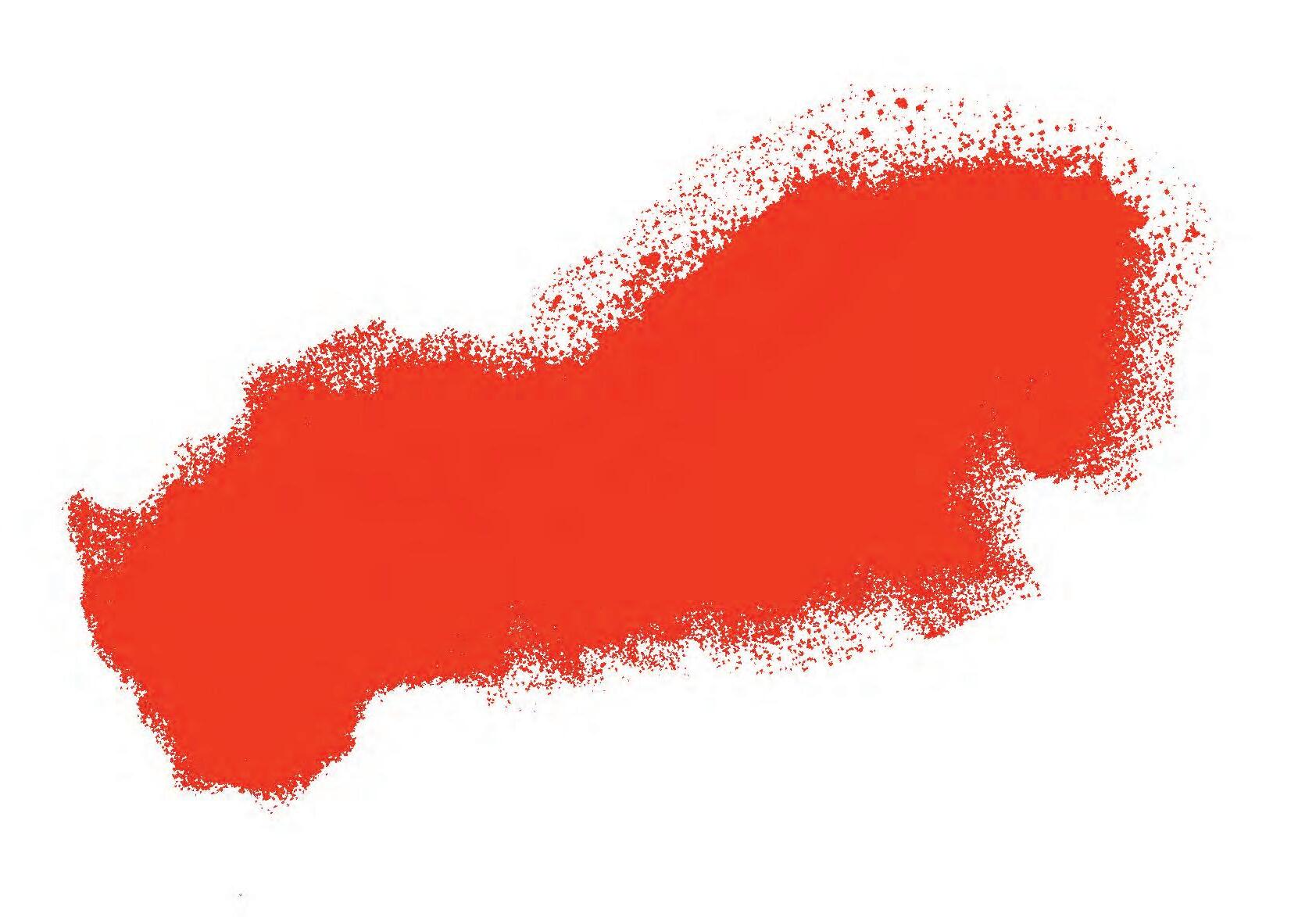
Executive Committee of the Croatian Football Federation
top row: Ile Topuzović, member; Drago Lucić, member; Mato Kljaić, member; Josip Kuterovac, member; Đuro Bukvić, member; Darko Raić Sudar, member; Ante Kulušić, member; Davor Ivić, member; Božidar Šikić, member; bottom row: Nenad Horvatić, member; Mario Smodlaka, vice-president; Nenad Črnko, vice-president; Ante Vučemilović-Šimunović, first vice-president; Marijan Kustić, president; Slavko Prišćan, vice-president; Damir Mišković, vice-president; Robert Markulin, member; Tomislav Svetina, general secretary
Croatian Football Federation Management


Tomislav Svetina General Secretary Vladimir Iveta Deputy General Secretary

Neven Šprajcer Deputy General Secretary

Stipe Pletikosa Technical Director

Petar Krpan Head of Football Development

Ružica Bajrić Head of Finance and Accounting

Jurica Bodrožić Head of General Affairs


Ante Cicvarić Head of Marketing and Promotion

Andrea Dokuš Head of Infrastructure and Investments

Jurica Jurjević Head of Safety, Prevention and Integrity

Tomislav Pacak Head of Communications

Igor Pristovnik Head of Referees Department

Ivančica Sudac Head of Club Licensing

Josip Tomaško Head of International Affairs















 Zoričić Graf Kraljević
Hitrec Hršak Vračarić Bakrač
Splivalo Bajakić Knežević Kolić
Bogatec Španjol Huber
Sušanj Ćilić Viđak Vedriš
Matovinović Brodarac Vidošević
Mikša Marković Šuker
Šuklje
Cuvaj Tepšić
Jurić Grabovac Čop
Srebrić Vrbanović
Jakopić
Hügl Lemešić
Wölfl Jerković
Poklepović Blažević Ivić
Zoričić Graf Kraljević
Hitrec Hršak Vračarić Bakrač
Splivalo Bajakić Knežević Kolić
Bogatec Španjol Huber
Sušanj Ćilić Viđak Vedriš
Matovinović Brodarac Vidošević
Mikša Marković Šuker
Šuklje
Cuvaj Tepšić
Jurić Grabovac Čop
Srebrić Vrbanović
Jakopić
Hügl Lemešić
Wölfl Jerković
Poklepović Blažević Ivić
prof. dr. Milovan Zoričić 1912 - 1914
Vladimir Očić 1914
dr. Milan Graf 1914 - 1919
dr. Ivo Kraljević 1939 - 1941
dr. Rudolf Hitrec 1941 - 1942
Vatroslav Petek 1942 - 1944
dr. Rinaldo Čulić 1944 - 1945
Mijo Hršak 1945 - 1947
Lazo Vračarić 1947 - 1950
inž. Boris Bakrač 1950 - 1953
Vlado Ranogajec 1953 - 1957
Presidents
Mirko Oklobdžija
Pero Splivalo 1959 - 1965

Luka Bajakić 1965 - 1966
Bruno Knežević 1966 - 1971
Ivan Kolić 1971 - 1976
Vlato Bogatec 1976 - 1978
Ljubo Španjol 1978 - 1981
Željko Huber 1981 - 1982
Dušan Veselinović 1982 - 1984
Milivoj Ražov 1984 - 1985
Adam Sušanj 1985 - 1986
Paško Viđak 1988 - 1990
dr. Mladen Vedriš 1990 - 1994
dr. Damir Matovinović 1994 - 1995
Đuro Brodarac 1995
Nadan Vidošević 1995 - 1996
dr. Josip Šoić 1996 - 1997
Branko Mikša 1997 - 1998
Vlatko Marković 1998 - 2012
Davor Šuker 2012 - 2021
Marijan Kustić 2021 -
General secretaries
Zvonimir Klobučar 1914 - 1918
Janko Justin 1918 - 1919
Fran Šuklje 1918 - 1919
Velimir Lamza 1939 - 1940
Julije Frangen 1939 - 1940
Bogdan Cuvaj 1939 - 1940
Mijo Hršak 1940 - 1941
Josip Šikić 1940 - 1941
Valent Malović 1940 - 1941
Vatroslav Petek 1941
Julije Frangen 1941 - 1943
Mirko Oklobdžija 1954 - 1957
Vlado Bogatec 1957 - 1959
Boris Tepšić 1959 - 1962
Ante Pavlović 1962 - 1981
prof. Marko Jurić 1981 - 1990
Duško Grabovac 1990 - 1995
Ante Pavlović 1995 - 1996
Josip Čop 1996 - 1998
Zorislav Srebrić 1998 - 2012
Damir Vrbanović (executive director) 2012 - 2019
Marijan Kustić (executive director) 2019 - 2021
Tomislav Svetina 2021(executive director 2021 - 2024; general secretary 2024 - )
Head coaches
Hugo Kinert 1918 - 1919
Jozo Jakopić 1939 - 1941
dr.Rudolf Hitrec 1941
Bogdan Cuvaj 1941 - 1943
Bernard Hügl 1943 - 1945
Bruno Knežević 1956
Leo Lemešić 1956
Franjo Wölfl 1956
Dražan Jerković 1990 - 1991
Stanko Poklepović 1992
Vlatko Marković 1993
Miroslav Blažević 1994 - 2000
Tomislav Ivić 1995
Mirko Jozić 2000 - 2002
Otto Barić 2002 - 2004
Zlatko Kranjčar 2004 - 2006
Slaven Bilić 2006 - 2012
Igor Štimac 2012 - 2013
Niko Kovač 2013 - 2015
Ante Čačić 2015 - 2017
Zlatko Dalić 2017 -




Croatian football history

Croatia. A small country for big football achievements. It would be quite enough to just write that when it comes to Croatian football. And yet... The rich history of Croatian football, of course, carries much more. Although... When the Vatreni sensationally won the bronze medal at the World Championship in France in 1998, no one could have thought that in the years that followed it would become a common practice.
The first official Croatian international match after gaining independence was an October 1990 friendly between Croatia and USA, played at Maksimir Stadium in Zagreb. Afterwards, Croatia was successful in the EURO 1996, qualifying and later secured quarterfinal stage. Two years later at the FIFA World Cup in France the national team won the bronze medal. At the same tournament Croatia striker Davor Šuker was the top goalscorer with six goals and has therefore won the Golden Boot award. Additionally, Šuker is the top Croatian goalscorer in history with 45 goals (69 caps). Everyone then thought that it was a success that would be difficult to repeat, but...
Twenty years after the great achievement in France, the generation led by captain Luka Modrić achieved the greatest success in the history of Croatian football by winning a silver medal at World cup in Russia 2018. The best promotion for Croatian football in Russia was the Golden Ball in the hands of Luka Modrić. No one was left indifferent, and no one will ever be, to Croatia’s performances at Russian pitches and to the brilliance of the tournament’s best player.
Many thought: now and who knows again... They were wrong. Croatia won another medal again at the next World Cup and continued
the trend of "a small country for big football achievements". The Vatreni won the golden bronze in Qatar and continued the continuity of great results. And again, it didn't end there either.
In the third edition of the UEFA League of Nations, Croatia qualified for the final tournament and won the silver medal! Unfortunately, the gold slipped away by a few centimeters, the penalties did not go to the Vatreni this time. After the fantastic semi-final victory over the Netherlands, Croatia played another big game in the final against Spain, but luck was on the opponent's side this time.
Croatia qualified for Euro 2024 in Germany by finishing second in a group with Turkey, Wales, Latvia and Armenia. Croatia achieved a decisive victory against Armenia (1:0) in the last game thanks to the goal of Ante Budimir, which brought the Vatreni their seventh appearance at the Euro.
In its short history since gaining independence, Croatia has secured 13 major competitions berths in 15 qualifying rounds, and has produced many successful and talented players.
Long Croatian football history dates back to the end of the 19th century, when the English came to Rijeka to build a factory and in their free time played the first football matches on Croatian soil, although the Croats didn't participate.
The English industrialists have afterwards arrived to the Croatian city of Županja. Upon their arrival, they have started to employ local people, and then taught the young citizens of Županja their games,








Bernard Vukas and Vladimir Beara, members of FIFA
«Rest of the World» team in match against England 1953.

First match of the Croatian national team in modern history against USA in Zagreb on 17 October 1990.
especially football. The English spent their after-work time playing with a small, round, compact leather ball. They passed the ball, kicked it around and soon they explained the rules of the game to the locals and finally left them the ball as a gift.
Football continued to be played in Županja, while the first football was found in 1979 in the Vladimir Nazor Street, in a typical bordercrossing guardhouse, approximately two centuries old. The ball was made from natural leather with flaps, one of which was missing. The owner inherited the ball from his ancestors, employed by the tannin factory founded by the English.
The first book about football, including the game rules, has been printed in Zagreb in 1896. An improved book of rules, along with explanations and guidelines, has been published in 1908. Football has been played by Croats through the gymnastic organization Croatian Falcon, while the first Croatian sports club committed to football was the First Football and Sports Club Zagreb, founded in 1903.
Before the World War I, some English teams have visited Zagreb and Croatia, where they have been defeated by the Croatian club HAŠK, and after the World War I, the Split team played several matches against the teams of English battleship sailors, anchored throughout the Adriatic. Professional coaches arrived to Croatia in 1914 to train and lead Croatian teams.
At the beginning of the 20th century, when first football clubs were founded in Croatia, football leaders wanted to found a national football federation, but the political circumstances didn't allow it.
After the first public football game between HAŠK and PNIŠK, played in Zagreb in front of the University Library in 1906, the Croats
developed even bigger desire to establish a national football federation. Three years later, the Croatian Sports Federation was founded.
In 1912, the oldest and most prominent football employees in Croatia, Milovan Zoričić, Zvonimir Klobučar, Ivan Pipinić, Hinko Würth, Dragutin Albrecht, and Branko Gavella, took over the stage to develop and improve football in Croatia. They can therefore be considered as some of the first members of the newly founded Croatian Football Federation.

Although the Croatian Football Federation has been founded in 1912, the Croatia national team played its first international matches already in 1907 in Prague against Slavia HNS continued its work during the World War I and II, including the struggle for equality within the Yugoslav Football Federation. Thus, Croatia participated in a joint football history within the former Yugoslavia, and numerous Croatian teams participated in the European Cup/Champions League and other UEFA competitions, while Croatian players participated in European Championships and World Cups in Yugoslav colours. Among the top goalscorers of the 1960 UEFA EURO and 1962 FIFA World Cup was Croatia striker Dražan Jerković, while Josip Skoblar won a Golden Boot as a Olympique Marseille player in 1970/71.
With the establishment of the sovereign, independent and democratic Republic of Croatia in 1990, Croatian football also became independent and the HNS started to work on further development of the most popular sport in the country and the world, Croatia was admitted to FIFA in 1992, although a first admission dates back in 1941, while in 1993 Croatia was admitted to UEFA. And then it all begins...
Miroslav Ćiro Blažević, Head coach in France 1998.



 Josip Skoblar
Dražan Jerković
Zvonimir Boban i Rober Prosinečki
Davor Šuker
Luka Modrić
Josip Skoblar
Dražan Jerković
Zvonimir Boban i Rober Prosinečki
Davor Šuker
Luka Modrić
INTERNATIONAL Individual awards
Josip Skoblar
Joint top Goalscorer (World Cup)
Dražan Jerković
22nd place (Ballon d'Or)
Josip Skoblar
6th place (Ballon d'Or)
Zlatko Vujović
19th place (Ballon d'Or)
Robert Prosinečki
Golden Ball (U-20 World Cup)
Zvonimir Boban
Silver Ball (U-20 World Cup)
Davor Šuker
2nd best Goalscorer (U-20 World Cup)
Robert Prosinečki
Best Young Player (World Cup)
Davor Šuker - Golden Player &
Top Goalscorer (U-21 EURO)
Robert Prosinečki
12th place (Ballon d'Or)
Robert Prosinečki
4th place (FIFA Footballer of the Year)
Robert Prosinečki
5th place (Ballon d'Or)
Alen Bokšić
4th place (Ballon d'Or)
Zvonimir Boban
24th place (Ballon d'Or)
Davor Šuker
17th place (Ballon d'Or)
Zvonimir Boban
23rd place (Ballon d'Or)
Davor Šuker
Team of the Tournament (EURO)
Davor Šuker

8th place (FIFA Footballer of the Year)
Davor Šuker
6th place (Ballon d'Or)
Alen Bokšić
13th place (Ballon d'Or)
Davor Šuker
7th place (FIFA Footballer of the Year)
Davor Šuker
Golden Booth (World Cup)
Davor Šuker
Silver Ball (World Cup)
Davor Šuker
All Star Team (World Cup)
Davor Šuker
2nd place (Ballon d'Or)
Davor Šuker
3rd place (FIFA Footballer of the Year)
Alen Bokšić
17th place (FIFA Footballer of the Year)
Luka Modrić
Team of the Tournament (EURO)
Ante Pavlović
UEFA Order of Merit - Emerald
Mario Mandžukić
Joint top Goalscorer (EURO)
Ivan Rakitić
23rd place (FIFA Ballon d'Or)
Luka Modrić
FIFA FIFPro World XI
Zorislav Srebrić
UEFA Order of Merit - Diamond
Luka Modrić
Silver Ball (FIFA Club World Cup)
Luka Modrić
UEFA Team of the Year
Luka Modrić
17th place (Ballon d'Or)
Luka Modrić
FIFA FIFPro World XI
Luka Modrić
13th place (FIFA The Best)
Luka Modrić
Golden Ball (FIFA Club World Cup)
Luka Modrić
UEFA Best Midfielder
Luka Modrić
UEFA Team of the Year
Luka Modrić
FIFA FIFPro World XI
Luka Modrić 6th place (FIFA The Best)
Luka Modrić 5th place (Ballon d'Or)
Luka Modrić
Golden Ball (FIFA World Cup)
Luka Modrić
Player of the Year (UEFA)
Luka Modrić
UEFA Best Midfielder
Luka Modrić
UEFA Team of the Year
Luka Modrić
FIFA FIFPro World XI
Luka Modrić
Player of the Year (FIFA The Best)
Luka Modrić
Player of the Year (Ballon d'Or)
Ivan Rakitić 19th place (Ballon d'Or)
Mario Mandžukić 25th place (Ballon d'Or)
Luka Modrić
FIFA FIFPro World XI
Luka Modrić
FIFA FIFPro World XI
Luka Modrić 29th place (Ballon d'Or)
Luka Modrić
Bronze Ball (FIFA World Cup)
Luka Modrić 9th place (Ballon d'Or)
Luka Modrić 4th place (FIFA The Best)
Luka Modrić
FIFA FIFPro World XI
Luka Modrić 10th place (Ballon d'Or)
Joško Gvardiol 25th place (Ballon d'Or)
Marcelo Brozović 11th place (FIFA The Best)










 Russia 2018™
Russia 2018™
European Championships
UEFA EURO 1996 England: Quarterfinals
UEFA EURO 2004 Portugal: Group stage
UEFA EURO 2008 Austria/Switzerland: Quarterfinals
UEFA EURO 2012 Poland/Ukraine: Group stage
UEFA EURO 2016 France: Round of 16
UEFA EURO 2020 Europe: Round of 16
UEFA EURO 2024 Germany: Qualified
Croatian Olympic Committee award "Matija Ljubek”
FIFA Best Mover of the Year
Hassan II Trophy Morocco: Winners
Team of the Year (Croatian daily "Sportske novosti”)
State award for sport "Franjo Bučar”
Team of the Year (Croatian daily "Sportske novosti”)
FIFA Best mover of the Year
Highest FIFA World Ranking (3rd place)
Highest FIFA World Ranking (3rd place)
Korea cup: Winners
World Cups
FIFA World Cup 1998 France: Third place
FIFA World Cup 2002 Korea/Japan: Group stage
FIFA World Cup 2006 Germany: Group stage
FIFA World Cup 2014 Brazil: Group stage
FIFA World Cup 2018 Russia: Second place
FIFA World Cup 2022 Qatar: Third place




UEFA Nations League Finals 2023: Second place
& Awards
Best promoter of Croatia (Croatian Olympic Committee)
Team of the Year (Croatian daily "Sportske novosti")
Best promoter of Croatia (Croatian Olympic Committee)
Best promoter of Croatia (Croatian Olympic Committee)
Best promoter of Croatia (Croatian Olympic Committee)
Team of the Year (Croatian daily "Sportske novosti")
Blue flower - Croatian National Tourist Board award
Best promoter of Croatia (Croatian Olympic Committee)
Best promoter of Croatia (Croatian Olympic Committee)
State award for sport "Franjo Bučar”
Charter of Republic of Croatia
Team of the year (Croatian Olympic Committee)
Best promoter of Croatia (Croatian Olympic Committee)
Team of the year (Croatian daily "Sportske novosti")
Team of the year (Croatian Olympic Committee)
Best promoter of Croatia (Croatian Olympic Committee)
Team of the year (Croatian daily "Sportske novosti")
Team of the year (Croatian Olympic Committee)
Best promoter of Croatia (Croatian Olympic Committee)
Team of the year (Croatian daily "Sportske novosti")
ACUP Cup, Egypt: Winners
UEFA Regions' Cup 2009
UEFA Futsal EURO 2012 Final tournament
UEFA TEP strategy meeting
UEFA U17 EURO 2017 Final tournament
UEFA Futsal Champions League Final tournament Zadar 2021
UEFA U19 Futsal EURO 2023 Final tournament






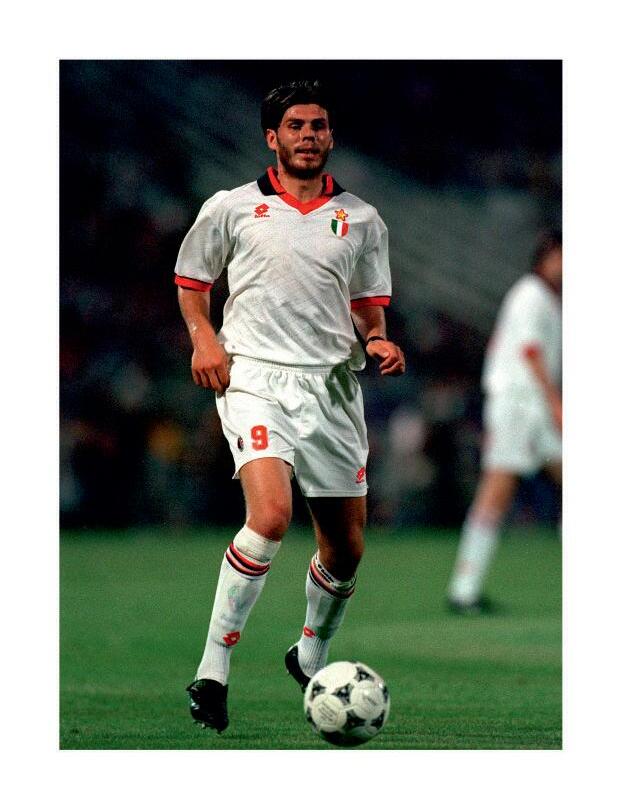





Croatians on top of Europe and World
Winners & Runners-up
UEFA EUROPEAN CUP / UEFA CHAMPIONS LEAGUE
1980Ivan Buljan, Branko Zebec (coach) (HSV)
1991 Robert Prosinečki (Red Star Belgrade)
1993 Alen Bokšić (Olympique Marseille)
1994 Zvonimir Boban (Milan)
1995 (Milan) Zvonimir Boban
1997Alen Bokšić (Juventus)
1998 DavorŠuker (Real Madrid)
2002Marko Babić, Jurica BorisŽivkovićVranješ,(Bayer)
2003 DarioŠimić (Milan)
2003Igor Tudor (Juventus)
2004 (Monaco) Dado Pršo
2005 Igor Bišćan (Liverpool)
2007 DarioŠimić (Milan)
2010Ivica Olić, Danijel Pranjić (Bayern)
2012Ivica Olić, Danijel Pranjić (Bayern)
2013 Mario Mandžukić (Bayern)
2014 Luka Modrić (Real Madrid)
2015 Ivan Rakitić (Barcelona)
2016 Mateo Kovačić, Luka Modrić (Real Madrid)
2017 Mateo Kovačić, Luka Modrić (Real Madrid)
2017Mario Mandžukić, Marko Pjaca (Juventus)
2018 Mateo Kovačić, Luka Modrić (Real Madrid)
2018Dejan Lovren (Liverpool)
2019 Dejan Lovren (Liverpool)
2020 Ivan Perišić (Bayern)
2021 Mateo Kovačić (Chelsea)
2022 Luka Modrić (Real Madrid)
2023Marcelo Brozović (Inter)
2024 Luka Modrić (Real Madrid)
UEFA CUP WINNERS’CUP (CWC) / UEFA CUP (UC) / EUROPA LEAGUE (EL) / CONFERENCE LEAGUE (CL)
1967 ZlatkoČajkovski (Bayern, coach - CWC)
1974 Mladen Ramljak (Feyenoord - UC)
1983 Luka Peruzović (Anderlecht - UC)
1985Zlatko Kranjčar, Otto Barić (coach) (Rapid Vienna - CWC)
1994Nikola Jurčević, Damir Mužek, Otto Barić (coach) (Austria Salzburg - UC)
1995Robert Jarni (Juventus - UC)
1998Zvonimir Soldo (Stuttgart - CWC)
1999 Alen Bokšić (Lazio - CWC)
1999 Mario Stanić (Parma - UC)
2000DavorŠuker (Arsenal - UC)
2005 Ivica Olić (CSKA - UC)
2008 Ivica Križanac (Zenit- UC)
2009 Darijo Srna (Shakhtar - UC)
2014 Ivan Rakitić (Sevilla - EL)
2015Nikola Kalinić (Dnipro - EL)
2016Dejan Lovren (Liverpool - EL)
2018 Šime Vrsaljko (Atletico M. - EL)
2019 Mateo Kovačić (Chelsea - EL)
2020Marcelo Brozović (Inter - EL)
2022 Kristijan Jakić (Eintracht) - EL
2022Borna Barišić (Glasgow Rangers) - EL
2023 Ivan Rakitić (Sevilla - EL)
2023Josip Brekalo () Fiorentina - CL
2024 Mario Pašalić (Atalanta - EL)
2024Josip Stanišić (Leverkusen - EL)
FIFA INTERCONTINENTAL CUP /
FIFA CLUB WORLD CHAMPIONSHIP
1987 Tomislav Ivić (Porto, coach)
1991Mirko Jozić (Colo Colo,) coach
1994 (Milan) Zvonimir Boban
1996 Alen Bokšić (Juventus)
1998 Robert Jarni, DavorŠuker (Real Madrid)
2001 Niko Kovač, Robert Kovač (Bayern)
2007 DarioŠimić (Milan)
2013 Mario Mandžukić (Bayern)
2014 Luka Modrić (Real Madrid)
2015 Ivan Rakitić (Barcelona)
2016 Mateo Kovačić, Luka Modrić (Real Madrid)
2017 Mateo Kovačić, Luka Modrić (Real Madrid)
2018 Luka Modrić (Real Madrid)
2021 Mateo Kovačić (Chelsea)
2022 Luka Modrić (Real Madrid)
2023 Mateo Kovačić, Joško Gvardiol (Man. City)
UEFA SUPERCUP
1977Ivan Buljan (HSV)
1987 Tomislav Ivić (Porto, coach)
1994 Zvonimir Boban (Milan)
1996 Alen Bokšić (Juventus)
1998Robert Jarni (Real Madrid)
1999 Alen Bokšić (Lazio)
2001 Igor Bišćan (Liverpool)
2001Niko Kovač, Robert Kovač (Bayern)
2003 DarioŠimić (Milan)
2008 Ivica Križanac (Zenit)
2009Darijo Srna (Shakhtar)
2013 Mario Mandžukić (Bayern)
2014 Luka Modrić (Real Madrid)
2015 Alen Halilović, Ivan Rakitić (Barcelona)
2016 Mateo Kovačić, Luka Modrić (Real Madrid)
2017 Mateo Kovačić, Luka Modrić (Real Madrid)
2018 Nikola Kalinić (Atletico Madrid)
2018Luka Modrić (Real Madrid)
2019Mateo Kovačić (Chelsea)
2020Ivan Rakitić (Sevilla)
2021 Mateo Kovačić (Chelsea)
2022 Luka Modrić (Real Madrid)
2022Kristijan Jakić (Eintracht)
2023 Mateo Kovačić, Joško Gvardiol (Man. City)
2023Ivan Rakitić (Sevilla)


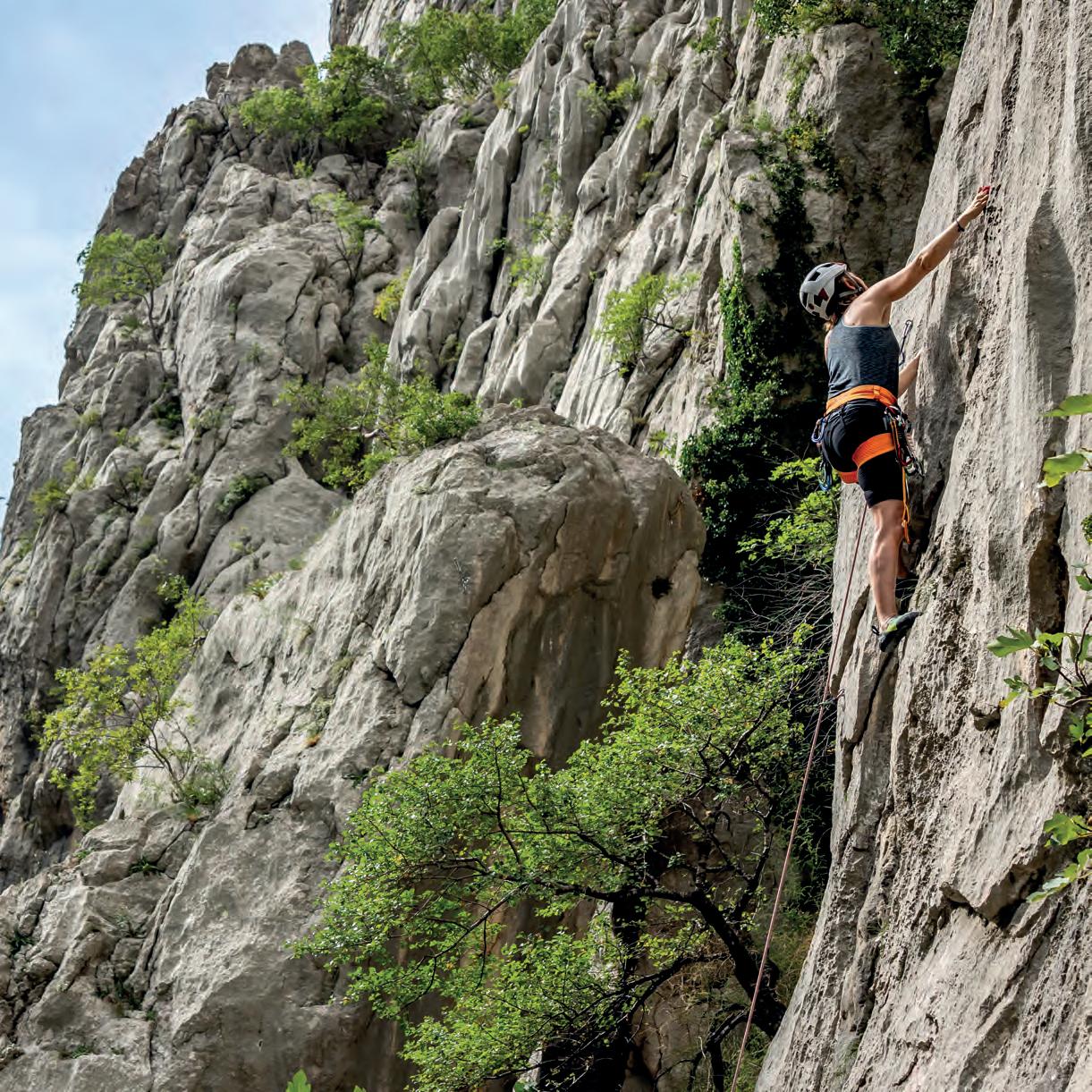





Energija koja pokreće Hrvatsku






25. 3. - EURO 2024 - European Qualifiers
Croatia - Wales 1:1
Kramarić 28' / Broadhead 90'+3'

ROAD TO UEFA
EURO 2024

28. 3. - EURO 2024 - European Qualifiers
Türkiye - Croatia 0:2
Kovačić 20', 45+4'

8. 9. - EURO 2024 - European Qualifiers
Croatia - Latvia 5:0
Petković 3', 44', Ivanušec 13', Kramarić 68', Pašalić 78'


11. 9. - EURO 2024 - European Qualifiers
Armenia - Croatia 0:1
Kramarić 13'

12. 10. - EURO 2024 - European Qualifiers
Croatia - Türkiye 0:1
Yilmaz 30'

15. 10. - EURO 2024 - European Qualifiers
Wales - Croatia 2:1
Wilson 47', 60' / Pašalić 75'

18. 11. - EURO 2024 - European Qualifiers
Latvia - Croatia 0:2
Majer 7', Kramarić 16'


21. 11. - EURO 2024 - European Qualifiers
Croatia - Armenia 1:0
Budimir 43'
QUALIFIERS EURO 1996
EST-CRO 0:2
CRO-LTU 2:0
ITA-CRO 1:2
CRO-UKR 4:0
LTU-CRO 0:0
CRO-SLO 2:0
UKR-CRO 1:0
CRO-EST 7:1
CRO-ITA 1:1

QUALIFIERS EURO 2000
IRL-CRO 2:0
MLT-CRO 1:4
CRO-MKD 3:2
MKD-CRO 1:1
YUG-CRO 0:0
CRO-MLT 2:1
CRO-IRL 1:0
CRO-YUG 2:2
SLO-CRO 1:2
UEFA EURO ENGLAND 1996
GROUP CRO-TUR 1:0
GROUP CRO-DEN 3:0
GROUP CRO-POR 0:3 1/4 CRO-GER 1:2

All competitive matches of the Croatia national football team in history
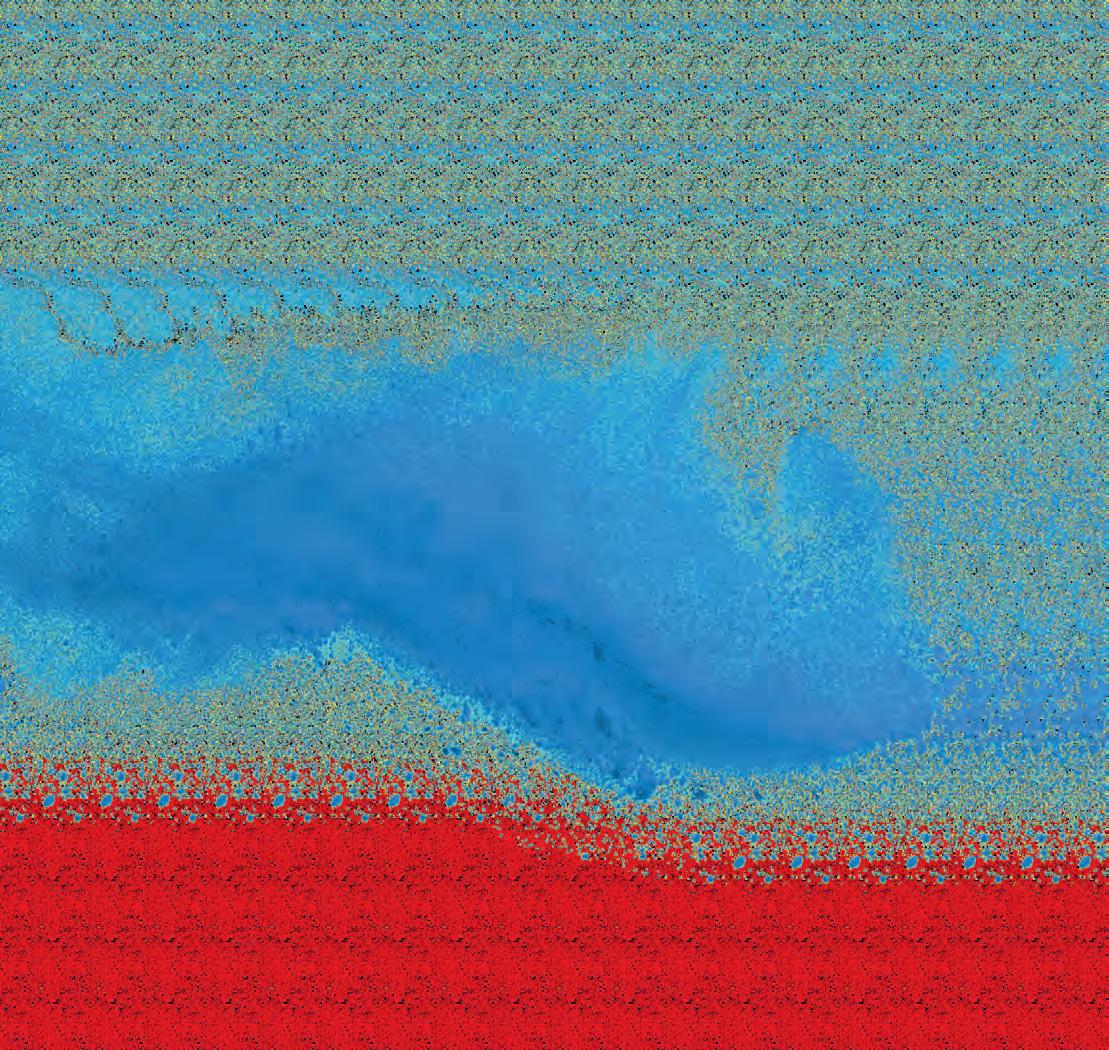
QUALIFIERS
QUALIFIERS
WC 1998
BIH-CRO 1:4
CRO-GRE 1:1
CRO-DEN 1:1
CRO-SLO 3:3
GRE-CRO 0:1
CRO-BIH 3:2
DEN-CRO 3:1
SLO-CRO 1:3
PLAY-OFF CRO-UKR 2:0
PLAY-OFF UKR-CRO 1:1
1998 FIFA WORLD CUP FRANCE
GROUP CRO-JAM 3:1
GROUP CRO-JPN 1:0
GROUP CRO-ARG 0:1 1/8 CRO-ROM 1:0 1/4 CRO-GER 3:0 1/2 FRA-CRO 2:1 rd3 PLACE CRO-NED 2:1

QUALIFIERS WC 2002
BEL-CRO 0:0
CRO-SCO 1:1
CRO-LVA 4:1
CRO-SNM 4:0
LVA-CRO 0:1
SCO-CRO 0:0
SNM-CRO 0:4
CRO-BEL 1:0
2002 FIFA WORLD CUP JAPAN/KOREA
GROUP CRO-MEX 0:1
GROUP ITA-CRO 1:2
GROUP ECU-CRO 1:0
QUALIFIERS EURO 2004
CRO-EST 0:0
BUL-CRO 2:0
CRO-BEL 4:0
CRO-AND 2:0
EST-CRO 0:1
AND-CRO 0:3
BEL-CRO 2:1
CRO-BUL 1:0
PLAY-OFF CRO-SLO 1:1
PLAY-OFF SLO-CRO 0:1
UEFA EURO PORTUGAL 2004
SUI-CRO 0:0
CRO-FRA 2:2
CRO-ENG 2:4
2:2
4:0
3:0
1:3
1:3
3:0
1:4
0:0
4:0
0:2
2:2
1:3
1:0
5:1
1:2
QUALIFIERS EURO 2012
LVA-CRO 0:3
CRO-GRE 0:0
ISR-CRO 1:2
CRO-MLT 3:0
GEO-CRO 1:0
CRO-GEO 2:1
MLT-CRO 1:3
CRO-ISR 3:1
GRE-CRO 2:0
CRO-LVA 2:0
PLAY-OFF TUR-CRO 0:3
PLAY-OFF CRO-TUR 0:0
UEFA EURO POLAND/ UKRAINE 2012
GROUP IRL-CRO 1:3
GROUP ITA-CRO 1:1
GROUP CRO-ESP 0:1
QUALIFIERS WC 2014
CRO-MKD 1:0
BEL-CRO 1:1
MKD-CRO 1:2
CRO-WAL 2:0
CRO-SRB 2:0
WAL-CRO 1:2
CRO-SCO 0:1
SRB-CRO 1:1
CRO-BEL 1:2
SCO-CRO 2:0
PLAY-OFF ISL-CRO 0:0
PLAY-OFF CRO-ISL 2:0
2014 FIFA WORLD CUP BRAZIL
GROUP BRA-CRO 3:1
GROUP CMR-CRO 0:4
GROUP CRO-MEX 1:3
QUALIFIERS EURO 2016
CRO-MLT 2:0
BUL-CRO 0:1
CRO-AZE 6:0
ITA-CRO 1:1
CRO-NOR 5:1
CRO-ITA 1:1
AZE-CRO 0:0
NOR-CRO 2:0
CRO-BUL 3:0
MLT-CRO 0:1
UEFA EURO FRANCE 2016
TUR-CRO 0:1
CZE-CRO 2:2
CRO-ESP 2:1
1/8 CRO-POR 0:1 AET
QUALIFIERS WC 2018
CRO-TUR 1:1
KOS-CRO 0:6
FIN-CRO 0:1
CRO-ISL 2:0
CRO-UKR 1:0
ISL-CRO 1:0
CRO-KOS 1:0
TUR-CRO 1:0
CRO-FIN 1:1
UKR-CRO 0:2
PLAY-OFF CRO-GRE 4:1
PLAY-OFF GRE-CRO 0:0
2018 FIFA WORLD CUP RUSSIA
GROUP CRO-NIG 2:0
GROUP ARG-CRO 0:3
GROUP ISL-CRO 1:2
1/8 CRO-DEN 1:1 (3:2 PEN)
1/4 RUS-CRO 2:2 (3:4 PEN)
1/2 CRO-ENG 2:1 AET
FINAL FRA-CRO 4:2
UEFA NATIONS LEAGUE 2018/19
ESP-CRO 6:0
CRO-ENG 0:0
CRO-ESP 3:2
ENG-CRO 2:1
QUALIFIERS EURO 2020
CRO-AZE 2:1
HUN-CRO 2:1
CRO-WAL 2:1
SVK-CRO 0:4
AZE-CRO 1:1
CRO-HUN 3:0
WAL-CRO 1:1

QUALIFIERS WC 2022
SVN-CRO 1:0
CRO-CYP 1:0
CRO-MLT 3:0
RUS-CRO 0:0
SVK-CRO 0:1
CRO-SVN 3:0
CYP-CRO 0:3
CRO-SVK 2:2
MLT-CRO 1:7
CRO-RUS 1:0
2022 FIFA WORLD CUP QATAR
GROUP MAR-CRO 0:0
GROUP CRO-CAN 4:1
GROUP CRO-BEL 0:0
1/8 JPN-CRO 1:1 (1:3 PEN) 1/4 CRO-BRA 1:1 (4:2 PEN) 1/2 ARG-CRO 3:0 rd3 PLACE CRO-MAR 2:1

CRO-SVK 3:1
UEFA EURO EUROPE 2020
ENG-CRO 1:0
CRO-CZE 1:1
CRO-SCO 3:1
1:1
0:1
0:1
2:1
1:3 1/2 NED-CRO 2:3 AET FINAL CRO-ESP 0:0 (4:5 PEN)


QUALIFIERS
CRO-WAL 1:1 TUR-CRO 0:2 CRO-LVA 5:0 ARM-CRO 0:1 CRO-TUR 0:1 WAL-CRO 2:1 LVA-CRO 0:2 CRO-ARM 1:0

1/8 CRO-ESP 3:5 AET
UEFA NATIONS LEAGUE 2020/21
POR-CRO 4:1
FRA-CRO 4:2
CRO-SWE 2:1
CRO-FRA 1:2
SWE-CRO 2:1
CRO-POR 2:3


15.06. CRO-ALB 19.06. CRO-ITA 24.06.
NATIONS LEAGUE 2024/25
POR-CRO 05.09. CRO-POL 08.09. CRO-SCO 12.10. POL-CRO 15.10. SCO-CRO 15.11. CRO-POR 18.11.
NE ODUSTAJEMO!










Zlatko Dalić was born on 26 October 1966 in Livno. During his time as a player, Dalić played for Hajduk (won Yugoslav Cup in 1983/84 season), Dinamo Vinkovci, Budućnost, Velež and Varteks.
After ending his playing career in 2000, he became an assistant coach at Varteks. From May 2002 to May 2005, Dalić worked as the club's sports director, and during the 2003/04 and 2004/05 seasons he simultaneously acted as an assistant coach for Miroslav Blažević. In May 2005, he was appointed manager of Varteks and in his first season at the helm he won third place in the Croatian First Division and reached the final of the Croatian Cup.
Later in his coaching career he managed Rijeka, Dinamo Tirana, with whom he won the Albanian Supercup, and, after that, Slaven Belupo. In the 2010/11 season, he became head coach of Al-Faisaly, and the club enjoyed the greatest success in its history, qualifying for the King’s Cup in the Saudi Professional League. During his Middle Eastern career he then managed Al Hilal, with whom he won the Saudi Crown Prince Cup (2012/13) and Al Ain, with whom he won UAE President’s Cup (2013/14), UAE Pro-League (2014/15) and UAE Super Cup (2015).
On 7 October 2017, after the sudden departure of Ante Čačić, the Croatian Football Federation appointed Dalić head coach of the Croatia national team. Two days later Dalić led Croatia to a 2:0 win over Ukraine in 2018 World Cup qualifiers, which also secured second place in their group and a place in the play-off. Croatia drew Greece in the play-off round and Dalić led the team to a 4:1 first-leg triumph over Greece, all but securing a place in the 2018 World Cup. In the return leg Croatia drew with Greece (0:0) thus securing a place in the World Cup finals. The rest is history.

HRVATSKA CROATIA ZLATKO
HEAD COACH
Dalić led the Croatian national team to the greatest success in the history by winning a silver medal at the World Cup in Russia thanks to group stage victories over Nigeria (2:0), Argentina (3:0) and Iceland (2:1), followed by penalty shootout victories over Denmark (3:2, 1:1) and Russia (4:3, 2:2) in the knockout stages, before the spectacular extratime victory over England in the semifinals (2:1). Croatia advanced to the final where they lost 2:4 to France. For this achievement, he received the annual Franjo Bučar State Award for Sport.
At the UEFA EURO 2020 Croatia qualified for the knockout stage where it was defeated by Spain (3:5) in overtime and one of the most exciting knockout stage matches of all time. Croatia previously qualified for the knockout phase with a win against Scotland (3:1) and a draw against the Czech Republic (1:1), with a loss at the start against England (0:1).
In the FIFA WORLD CUP 2022 qualifying campaign, Croatia topped the group and secured its place at the final tournament in Qatar.
Under the leadership of Zlatko Dalić, another historic medal of Croatian football was won at the World Cup in Qatar. Croatia won bronze by defeating Morocco (2:1) in the match for third place. For the second time in a row, the Vatreni stayed on the world's biggest stage until the end, unlike Russia in 2018, this time they failed to reach the final, Argentina was better in the semi-final (3:0), but they returned home as winners. On the way to bronze Croatia drew with Morocco (0:0) and Belgium (0:0) and defeated Canada (4:1) at the group stage and in the knockout phase they defeated Japan after penalty shootout (3:1 , 1:1) in the round of 16 and then eliminated the Brazil in an identical way (4:2, 1:1).
The honors of the Vatreni did not end there either. Zlatko Dalić led Croatia to the silver medal at the final tournament of the League of Nations. The third was lucky for Dalić and Croatia, in the third edition of the prestigious national team competition, Croatia
qualified for the final tournament and in the semi-final match in Rotterdam defeated the Netherlands (4:2) and reached the final against Spain. Unfortunately, in the final match, the penalty shootout this time went in favor of the Spanish team.
Croatia qualified for Euro 2024 in Germany by finishing second in a group with Turkey, Wales, Latvia and Armenia. Croatia achieved a decisive victory against Armenia (1:0) in the last game thanks to the goal of Ante Budimir, which brought the Vatreni their seventh appearance at the Euro.

COACHING STAFF


STIPE PLETIKOSA

DRAŽEN LADIĆ

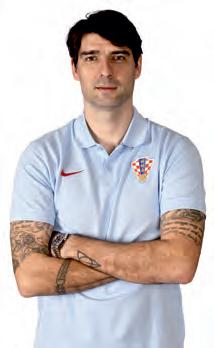
VEDRAN ĆORLUKA

TECHNICAL DIRECTOR MARIN DADIĆ
COACH

COACH MARIO MANDŽUKIĆ


GOALKEEPERS



GOALKEEPERS

FITNESS COACH
DOMINIK
LIVAKOVIĆ
Fenerbahçe (TUR) 54 caps / no goals 9. 1. 1995

IVICA

Pafos (CYP)
6 caps / no goals 1. 2. 1995.

GK / DF


Rijeka (CRO) 1 cap / no goals 10. 10. 1999


DF Manchester City (ENG)
30 caps / 2 goals 23. 1. 2002

BORNA

DF Ajax (NED)
20 caps / 1 goal 21. 1. 1998

DF Bayer Leverkusen (GER) 18 caps / no goals 2. 4. 2000

DF Ajax (NED) 14 caps / no goals 28. 2. 2000
MARTIN

DF Sassuolo (ITA)
9 caps / no goals 24. 1. 1998


DF Lecce (ITA)
8 caps / no goal 11. 9. 1997
MF
Real Madrid (ESP)

MARIO PAŠALIĆ
MF
Atalanta (ITA)
63 caps / 10 goals 9. 2. 1995


175 caps / 25 goals 9. 9. 1985 MATEO

MF Manchester City (ENG)
101 caps / 5 goals 6. 5. 1994

NIKOLA
MF Torino (ITA)
56 caps / 8 goals 4. 10. 1997

MF Feyenoord (NED) 21 caps / 2 goals 26. 11. 1998
MF RB Salzburg (AUT) 7 caps / no goals 8. 9. 2002


MF
Al-Nassr (KSA)
96 caps / 7 goals 16. 11. 1992

MF
Wolfsburg (GER) 31 caps / 8 goals 17. 1. 1998
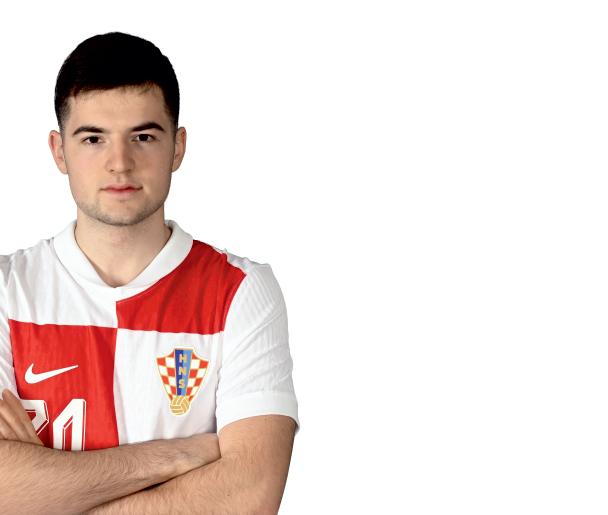
MF
(CRO) 3 caps / 0 goals 16. 2. 2003.

IVAN
PERIŠIĆ
FW
Hajduk (CRO)
131 caps / 33 goals 2. 2. 1989

ANDREJ KRAMARIĆ
FW Hoffenheim (GER)
93 caps / 28 goals 19. 6. 1991


FW Dinamo (CRO)
38 caps / 11 goals 16. 9. 1994

MARKO PJACA
FW
Rijeka (CRO)
26 caps / 1 goal 6. 5. 1995

ANTE
BUDIMIR
FW Osasuna (ESP)
21 caps / 3 goals 22. 7. 1991


FW Rijeka (CRO)
5 caps / 1 goals 14. 9. 2000


MARIJAN KUSTIĆ PRESIDENT

TOMISLAV SVETINA GENERAL SECRETARY
delegation members

TOMISLAV PACAK HEAD OF COMMUNICATIONS
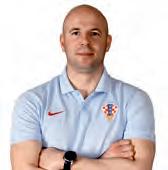
JURICA JURJEVIĆ HEAD OF SECURITY

ANTE CICVARIĆ HEAD OF MARKETING

NIKŠA MARTINAC TICKETING MANAGER

HELENA PUŠKAR EVENT MANAGER


MIROSLAV MARKOVIĆ SECURITY OFFICER

BLAGO JAKOVLJEVIĆ PROTOKOL

TOMISLAV VLAHOVIĆ
DOCTOR
MARKO SVILIĆ SECURITY OFFICER

IVONA HEMEN MEDIA OFFICER

DRAGO SOPTA PHOTOGRAPHER

DOMINIK KUMEK DIGITAL CREATOR

DAVOR COTA DIGITAL CREATOR
MIROSLAV JAMNIĆ
PHYSIOTHERAPIST

KOPRIČANEC PROTOKOL

SAŠA JANKOVIĆ DOCTOR


BURAZER PROTOKOL
MISLAV KRZNARIĆ MEMBER OF DELEGATION

TIHOMIR MALOČA MEMBER OF DELEGATION


EDUARD ROD DOCTOR


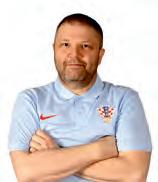
TOMICA ĐUKIĆ CHEF


NENAD KROŠNJAR PHYSIOTHERAPIST NEVEN GOLUBAR PHYSIOTHERAPIST
NDERIM REDŽAJ PHYSIOTHERAPIST




LUKA KARLO
GORAN BELOGLAVEC PHYSIOTHERAPIST DENNIS LUKANČIĆ KIT
















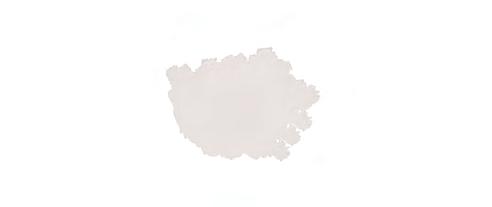















LUKA MODRIĆ
Captain
AsEuropebracesitselfforanotherthrillingdisplayoffootballheroismintheupcoming2024EuropeanChampionship,all eyesturntooneofthemostillustriousfiguresinthegame:LukaModrić.TheCroatianmaestro,hailedforhisexceptionalvision, impeccableballcontrol,andunwaveringdetermination,standsonthebrinkofyetanotheropportunitytoetchhisnameinthe annalsoffootballhistory.
ForModrić,thistournamentholdsspecialsignificance,markinghis5thEuropeanChampionship.With174appearancesand 24goalsinallcompetitionsinaCroatianjerseytohisnamethusfar,Luka'sjourneyepitomizesataleofsheerdedicationand unparalleledskill.FromhisearlydaysonthepitchesofCroatiatogracingthegrandstagesofEuropeanfootball,Modrićhas becomeasymbolofexcellence,earningtherespectandadmirationoffansworldwide.
"Hisperformanceisunreal.He'snottired,hehasn'tmissedabeat,hehasn'tsloweddown.WhenIthought aboutmakingsubstitutions,hesaidhewascompletelyready.Playingtwicefor120minutesinfourdays,that's unreal.He'saseriousprofessional,agentlemanonthefield.Hegiveshisallineverytrainingsession,andthen some.It'shardtofindsomeoneat37yearsoldwhowouldcarrytheteamlikethis.It'snotexactlynormal,butLukais showinghisquality…Somehadstartedtowritehim off,buthecamebackandledCroatiatothesemifinals.Luka ModrićwillleadCroatiaforalongtimetocome",saidheadcoachZlatkoDalićafterthegreatvictoryofCroatiaagainst BrazilinthequarterfinalsoftheWorldCupinQatar.
Asthecaptainpreparestoleadhisnationatanothermajortournament,Modrić'spresenceservesasbothaninspirationanda warningtohisadversaries.Hisabilitytodictatethetempoofthegame,orchestratesublimepasses,anddelivermomentsofsheer brilliancehassolidifiedhisstatusasoneofthemoderngreatsofthesport.
Yet,forallhisindividualaccolades,Modrićremainsgrounded,drivenbyarelentlesshungerforsuccessandaburningdesire topropelhisteamtoglory.Witheachtouchoftheball,hecarriesthehopesanddreamsofanation,embodyingthespiritof Croatianfootballwitheverystride.
Now,attheageof38,hehearsthesamequestionmoreandmoreoften-howlongwillhebeabletoplayforthenationalteam.
"IlovefootballsomuchandIenjoyeverythingsomuch,andmaybethat'soneofthereasonswhyIlastsolong.I feelsogoodandIreallyenjoyandlovefootballfromthebeginning,it'spracticallyeverythingtome.Ofcourse, familyisthemostimportantthing,butthat'swhatfulfillsmeandmakesmehappy.Ithasneverhappenedtomethat somethingisdifficultrelatedtomatchesortraining",Lukastated.
"Firstandforemost,weneedtosay'thankyou'toLukaforeverythinghehasdoneforCroatiaandfootballinthe country.Knowinghim,I'mnotquitesureifthisWorldCupishislast.Agecatchesupwithallofus,andthat's somethingwecan'tcontrol,buthewillremainimmortalforthewholeworldandforusCroats.It'sanexceptional honorandpridetoplaywithhimandlearnfromhimhowtomakefootballlooksimpleonthefield",saidLuka's teammateAndrejKramarić,asCroatiawonitssecondstraightWorldCupmedalin2022.
Asthecountdowntokickoffbegins,thestageissetforModrićtoonceagainshowcasehisextraordinarytalentsonthe Europeanstage.Withhisunparalleledexperience,indomitablespirit,andunrivaledskill,hestandsreadytoleaveanindelible markonyetanotherchapteroffootballinghistory.ForLukaModrić,thestageisset,thechallengeaccepted,andthejourney towardsgreatnesscontinues.

NATIONAL TEAM HONOURS:
FIFA World Cup Russia 2018: silver medal
FIFA World Cup Qatar 2022: bronze medal
UEFA Nations League 2023: silver medal
MOST NOTABLE INDIVIDUAL AWARDS:
6x FIFPro World XI (2015, 2016, 2017, 2018, 2019, 2022)
Ballon d’Or (2018)
The Best FIFA Men's Player (2018)
UEFA Best Player in Europe (2018)
Player of the Tournament World Cup Russia (2018)
Golden Foot (2019)
Bronze Ball World Cup Qatar (2022)
4th
place FIFA The Best (2022)
CLUB HONOURS:
Real Madrid:
63/24
x Champion's League Winner (13/14, 15/16, 16/17, 17/18, 21/22, 2)
4x Spanish Champion (16/17, 19/20, 21/22, 23/24)
2x Spanish Cup Winner (13/14, 22/23)
5x FIFA World Cup Winner (2014, 2017, 2018, 2019, 2023)
4x UEFA Supercup Winner (14/15, 16/17, 17/18, 22/23)
5x Spanish Supercup Winner (12/13, 17/18, 19/20, 21/22, 23/24)
Dinamo Zagreb:
3x Croatian Champion (05/06, 06/07, 07/08)
2x Croatian Cup Winner (06/07, 07/08)
Croatian Super Cup Winner (05/06)


CROATIAN
INTERNATIONALS










NED ENG GER
AUT
CRO
ITA ESP
Joško Gvardiol Man. City (ENG) Mateo Kovačić Man. City (ENG)
Josip Juranović Union Berlin (GER)
Andrej Kramarić Hoffenheim (GER)
Luka Sučić RB Salzburg (AUT)
Martin Baturina Dinamo (CRO) Nediljko Labrović Rijeka (CRO)
Marco Pašalić Rijeka (CRO)
Martin Erlić Sassuolo (ITA)
Mario Pašalić Atalanta (ITA)
Luka Modrić Real Madrid (ESP)
Dominik Livaković Fenerbahçe (TUR) TUR 1
Ivica Ivušić Pafos (CYP)

Domagoj Vida AEK (GRE)
2 3 4 1 6 4 2 1 1
Borna Sosa Ajax (NED)
Marcelo Brozović Al-Nassr (KSA)
Luka Ivanušec Feyenoord (NED) 1
Josip Šutalo Ajax (NED)
Josip Stanišić Bayer (GER)
Lovro Majer Wolfsburg (GER)
Marko Pjaca Rijeka (CRO)
Ivan Perišić Hajduk (CRO)
Bruno Petković Dinamo (CRO)
Marin Pongračić Lecce (ITA)
Nikola Vlašić Torino (ITA)
Ante Budimir Osasuna (ESP)









Energija koja pokreće Hrvatsku













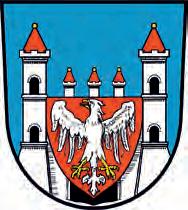
Neuruppin Home for Croatian team during EURO 2024
During EURO 2024, Croatia national team will stay in Neuruppin, a town in Brandenburg, located on the shores of Ruppiner See. Croatian team base camp in Neuruppin consists of the Mark Brandenburg Resort and the Volksparkstadion traning ground, just a seven-minute drive from the hotel.
Following the EURO 2024 group stage draw that put Croatia in the Northern region, Croatia coach Ivica Olić, team manager Iva Olivari and head of communications Tomislav Pacak revisited the best team base camp options, and agreed with HNS president MarijanKustić and head coach ZlatkoDalić that Neuruppin is the best option for Croatia.
"Our main goal is to secure the best possible conditions for our national team. Neuruppin was one of the most wanted basecamps in UEFA catalogue and I'm happy that our logistics did an excellent job to overtake other teams. We'll have an idyllic natual environment and great conditions to work", said HNS president Kustić. Neuruppin is situated 75 kilometers from the Olympic Stadium in Berlin, where Croatia opens the EURO 2024 against Spain while Hamburg (225 km) and Leipzig (227 km) can be easily reached by bus, so the Vatreni will not need to fly in the group stage. Furthermore, the Mark Brandenburg resort has an excellent fitness center and other facilities that also allow privacy for the team.
"I have full confidence in HNS logistics that did a perfect job in previous tournaments, from Russia to Qatar. I have very positive impressions on this camp because it offers just what we seek: excellent sporting conditions, fitness and training centre, and peaceful and pleasant environment. Moreover, the location is great and we will not lose too much time on travel. Therefore, Neuruppin is a perfect choice for us", said Croatia head coach Dalić.




Aljoša Asanović
Slaven Bilić
Zvonimir Boban
Alen Bokšić
Elvis Brajković
Igor Cvitanović
Tonči Gabrić
Robert Jarni
Nikola Jerkan
Nikola Jurčević
Dražen Ladić
Mladen Mladenović
Marjan Mrmić
Igor Pamić
Dubravko Pavličić
Robert Prosinečki
Zvonimir Soldo
Mario Stanić
Dario Šimić
Igor Štimac
Davor Šuker
Goran Vlaović


 Head coach:
Miroslav Blažević
Head coach:
Miroslav Blažević

UEFA EURO 1996 ENGLAND
A masterpiece debut
With the independence war in their homeland barely over, Croatia internationals were on a special mission in England, the cradle of football. They had to introduce their football-loving country to Europe and to the world, and to present the sheer class in Miroslav Blažević's team. Defeating World Cup runner-up Italy away in qualifying campaign, and finishing above the Azzurri, was certainly a good omen.
And Croatia did not disappoint, not in the least. Producing some of the historic European Championships moments, Croatia won its premiere, then sent the defending champions Denmark home, and even came close to upsetting future champions Germany in the quest for the semifinals stage.
Goran Vlaović was the hero of the clash of the debutants, outrunning Turkey defender Özalan in the 86th minute (1:0), and Davor Šuker's icing on the victorious cake against Denmark (3:0) is still ranked among the best goals of any major competition. Brilliant chip over Schmeichel made Croatia one of the talking points of the tournament.
With second round firmly in its hands, Croatia could afford to lose to Portugal (0:3), and was ready to create a sensation against the ever-winning Germans. Klinsmann penalty was a setback, but Šuker had more magic at his disposal. Soon after half-time, he beat Köpke with a masterpiece and it was all back to square one.
Minutes later, Igor Štimac was sent off, and Sammer was quick to convert a somewhat doubtful Germany move (1:2). Despite this scenario, Croatia returned home with a head held high.
The footballing public was now very familiar with the names of Ladić, Bilić, Jarni, Prosinečki, Boban, Asanović, Šuker, and other Croatian stars, and the more perceptive may have even realized what was about to happen in France.



sport.infozagreb.hr

#VisitZagreb
#ZagrebSportStory




Aljoša Asanović
Slaven Bilić
Zvonimir Boban
Robert Jarni
Krunoslav Jurčić
Goran Jurić
Ardian Kozniku
Petar Krpan
Dražen Ladić
Zoran Mamić
Silvio Marić
Marjan Mrmić
Robert Prosinečki
Zvonimir Soldo
Mario Stanić
Anthony Šerić
Dario Šimić
Igor Štimac
Davor Šuker
Igor Tudor
Vladimir Vasilj
Goran Vlaović

 Head coach: Miroslav Blažević
Head coach: Miroslav Blažević

1998 FIFA WORLD CUP FRANCE
They
came,
they
saw, they amazed the world
Joining the world elite for the first time, Croatia has written a fairytale to be narrated over and over, a story that helped putting one small, emerging country onto the global map. In 1998, time stopped for a month for the people of Croatia, as their sporting idols embarked on a journey that made football the first topic of the morning and the last in the evening.
The French city of Lens became the focus of attention, as the young, football-crazed nation of Croatia awaited the premiere of its national team at the World Cup stage, after impressive EURO 1996 performance and scraping through a difficult qualifying campaign.
With Jamaican debutants as opponents, Mario Stanić signed up for the historic first goal. Earle's equalizer did not distract policeman hatwearing coach MiroslavBlažević's troops. A pinch of RobertProsinečki's magic and the first of DavorŠuker's goals generated three points.
Good became even better. Summer heat torture under the French sun against the feisty Japanese was deadlocked until 77th minute, when Šuker once again proved his worth and Croatia made it two out of two, with a place in the knockout stage firmly in hand.
Thus, even better became excellent. Defeat against Argentina in the contest for the Group H top spot (0:1), therefore, was quickly forgotten.
And excellent soon became euphoric. Blonde-dyed Romanians in the Round of 16 were dealt with another Šuker sang-froid moment, in the dying minutes of the first half, to the anger of the helpless goalie Stelea.
Euphoric then became unbelievable. Stade Gerland in Lyon, adorned with an enormous red-white-and-blue flag, from that night on a sacred ground for Croatians, witnessed the fall of the ten-man German giant. Wörns sending off set the scene: for Robert Jarni to shoot from outside of the box to draw the first blood, for Dražen Ladić to produce one of the saves of the tournament, for Goran Vlaović to extend the lead, and for DavorŠuker to put the icing on the cake.
Unbelievable became a dream fulfilled. Almost. Croatia was in the World Cup final for one minute. Just after the break of the semifinal showdown with France, Šuker stunned the hosts and Croatia dared to dream. With the dream to be thrashed by an unlikely figure, French . He revived the Les Blues scoring the only two international goals of his career, the immediate equalizer and the 69th minute winner, and Croatia could not recover. What was left for heartbroken Croatia was to win the bronze medal at the Parc des Princes.

Mission was accomplished in an entertaining encounter with Netherlands, Prosinečki and Šuker finding the target. The deserved, longlasting celebrations on and off the streets could now take their final shape. Croatia returned home for a hero's welcome, with the memories and pride to last for eternity.

DAVORŠUKER
1998 Golden Boot
DavorŠuker,thepresidentoftheCroatianFootballFederation, former carvedinFrancehisplaceinfootballhistory.Scoringsixgoals,hewonthe GoldenBootawardandforeverranksamongthegreatslikeRonaldo, Lineker,Rossi,Kempes,G.Müller,Eusebio,Fontaine,Kocsisandothersthat haveaccomplishedthisfeat.Tothisday,isalsothebestgoalscorerof Šuker theCroatiannationalteam,with45goalsin69matches.
AgainstJamaica,Japan,andGermanyhemanagedtosqueezetheball behindtheopponents'goalkeepers,whileagainstRomaniahehadtoretake hispenaltykickandkepthisnerve,famouslycheckinghispulsebeforehand. Asanovićsplendidlyputhimthroughinthesemifinalstagetocalmlybeat BarthezVander inone-on-onesituation,andforhisgrandfinalehefound Sar'soppositecornerwithsurgicalprecisiontoclaimthegoalscoringtitle andwinthebronze-medalmatchforCroatia.





Boško Balaban
Alen Bokšić
Tomislav Butina
Robert Jarni
Niko Kovač
Robert Kovač
Ivica Olić
Stipe Pletikosa
Robert Prosinečki
Milan Rapaić
Zvonimir Soldo
Mario Stanić
Daniel Šarić
Anthony Šerić
Dario Šimić
Josip Šimunić
Davor Šuker
Stjepan Tomas
Vladimir Vasilj
Goran Vlaović
Jurica Vranješ
Davor Vugrinec
Boris Živković

 Head coach: Mirko Jozić
Head coach: Mirko Jozić

2002 FIFA WORLD CUP KOREA/JAPAN
Three-minute frenzy not enough
Croatia qualified for the World Cup in Japan and South Korea ahead of Belgium, under the head coach Mirko Jozić, the successor of triumphant Miroslav Blažević, and the captaincy of the "golden generation" stars Davor Šuker and RobertJarni. However, the Japan adventure was brought to a halt in group stage already.
The chequered team peaked during the three-minute frenzy against Italy in the second match, when Ivica Olić and MilanRapaić between 73rd and 76th minute cancelled Vieri's opener and secured a memorable 2:1 win.
Euphoria in the Croatian ranks and among the travelling fans, as well as those back in homeland, was not diminished by Italy's disallowed goals, and once again a lot was expected from the World Cup.
Back in business, after the opening defeat against Mexico - with Živković sent off and Blanco scoring from the penalty spot - Croatia was left to deal with the debutants Ecuador.
The decider was not Croatia's finest hour, and none of the rare opportunities were made to count. The South Americans took their chance, Mendez finding the way to Pletikosa's net at the very beginning of the second half. Jozić's men never recovered and headed back home, though claiming the third place ahead of Ecuadorians on goal-difference, while Mexico and Italy progressed to the second round.








 Joseph Anthony Didulica
Dario Šimić
Josip Šimunić
Tomo Šokota
Mario Tokić
Stjepan Tomas Igor Tudor
Vladimir Vasilj
Boris Živković
Head coach: Otto Barić
Joseph Anthony Didulica
Dario Šimić
Josip Šimunić
Tomo Šokota
Mario Tokić
Stjepan Tomas Igor Tudor
Vladimir Vasilj
Boris Živković
Head coach: Otto Barić

UEFA EURO 2004 PORTUGAL Effort rewardpresent, absent
Having missed the 2000 tournament in Belgium and Netherlands, Croatia struggled to reach its second European Championships, and had to eliminate the sturdy Slovenian neighbours in the edgy two-legged qualifying play-offs.
The prize was a Group B draw alongside Switzerland, France, and England, and the majority of Croatia's hopes and dreams were invested in the opening match with the Swiss in Leiria. Otto Barić's men had the upper hand, Switzerland had Vogel sent off and an occasional threat, but both teams had ultimately to settle for a single point (0:0).
The second task for Croatia was to prove itself against the current European champions France, encouraged by lastgaps victory over the English. In the first half, Tudor own goal gave the French the edge, but in the opening minutes of the second half Croatia reversed the course of the game.
Milan Rapaić converted a spot kick to equalize, while Dado Pršo's volley rocked Barthez and suddenly it was France the hunter, and Croatia the hunted. Trezeguet finally took advantage of Croatia defensive lapses (2:2) and the decision was to be made in the final round of matches.
France did its job against Switzerland, and England recovered from the Niko Kovač's early goal in Lisbon. A single Scholes goal, alongside Rooney's brace, left Croatia a mountain to climb. Tudor cut the English advantage in half, but it was Lampard to lower the curtain (2:4) on Croatia appearance in Portugal.








2006 FIFA WORLD CUP GERMANY Emotional rollercoaster without a happy-end
With the world stage set next door, in Germany, Croatia enjoyed plenty of support before and throughout the tournament, and another qualifying campaign without a defeat induced high hopes. Even though Croatia was to learn how to unfold the group stage against Brazil.
The title holders, star-packed Brazilians with Ronaldo, Ronaldinho and Adriano, had to rely on Kaka's excellent shooting technique and his ball in the Croatia's top corner just a minute before the break.
Lost match, interestingly, gained Croatia even more support: fantastic red-and-white fans at the Olympic Stadium in Berlin and Croatia's defiance through a very good performance earned Zlatko Kranjčar's team deserved praise, thus becoming a "World Cup darling" for many.
Another extremely hot day, as in France '98, awaited Croatia's clash with Japan. This time, there was no Šuker moment, as the match ended in a goalless draw, with Croatia missing golden opportunities in the first half, when Kawaguchi stopped Srna's penalty, and NikoKranjčar hit the crossbar afterwards.
The third outing matched the excitement level of the Brazil encounter. Srna's brilliant free-kick in the opening minutes steered Croatia towards the finish line, but the persistent Australians never gave up. Moore equalized after Tomas handballed in the area, only for the captain Niko Kovač - who was to lead Croatia in Brazil 2014 from the benchto restore Croatia's lead, his ball crawling under keeper Kalac.
Socceroos' relentless pressure paid off again ten minutes before the end, when Kewell made it 2:2 and paved the way for the mayhem finale with three red cards in total, including the bizarre Šimunić scene. Referee Graham Poll showed him three yellow cards before sending him off. This emotional rollercoaster in Group F remains one of the unforgettable events in Croatia's football history.






Igor Budan
Vedran Ćorluka
Mario Galinović
Nikola Kalinić
Ivan Klasnić
Dario Knežević
Niko Kovač
Robert Kovač
Niko Kranjčar
Jerko Leko
Luka Modrić Ivica Olić
Mladen Petrić
Stipe Pletikosa
Nikola Pokrivač
Danijel Pranjić
Ivan Rakitić
Vedran Runje
Darijo Srna
Dario Šimić
Josip Šimunić
Hrvoje Vejić
Ognjen Vukojević
 Head coach:
Slaven Bilić
Head coach:
Slaven Bilić
UEFA EURO 2008 AUSTRIA/SWITZERLAND Haunting heartbreak
Following the magnificent qualifying night at Wembley, where Croatia left England without a final tournament ticket, the enthusiasm surrounding Slaven Bilić's men was difficult to curb. And they responded in style, winning all three group stage matches.
The intense opening in Vienna against one of the hosts, Austria, was resolved by LukaModrić's penalty after just four minutes (1:0). However, Croatia made their fans tremble in the closing minutes and Croatia goalkeeper Stipe Pletikosa had to give a significant contribution.
A full redemption was staged four days later in Klagenfurt, against future finalists Germany. In one of the best Croatia's performances in modern history, Löw's troops fell to Darijo Srna and Ivica Olić strikes, while Podolski's consolation goal (2:1) could not stop red-and-white celebrations and quarterfinal berth was already secured.
Therefore, Bilić gave an opportunity to his reserve squad against Poland, but the feedback did not alter: Ivan Klasnić scored the decider (1:0) at the beginning of the second half, and Croatia immediately shifted its focus back to Vienna, to a clash with Turkey.
An exhausting, bravely fought encounter by both sides was deadlocked for 119 minutes. Then, the kidney transplantation hero Klasnić found the net to spark Croatian rapture, but there was a cruel twist in waiting. With the last kick of the game, Sentürk managed to equalize and the devastated Croatians could not keep a cool head in the penalty shootout, leaving Turkey to progress to the so-close-yet-so-far semifinals. With the nation in tears, Slaven Bilić said that this match will haunt Croatia for life. Time, it seems, proves him right.





Milan Badelj
Jurica Buljat
Vedran Ćorluka
Tomislav Dujmović
Eduardo da Silva
Nikica Jelavić
Nikola Kalinić
Ivan Kelava
Niko Kranjčar
Mario Mandžukić
Luka Modrić
Ivan Perišić
Stipe Pletikosa
Danijel Pranjić
Ivan Rakitić
Gordon Schildenfeld
Darijo Srna
Ivan Strinić
Danijel Subašić
Josip Šimunić
Domagoj Vida Šime Vrsaljko
Ognjen Vukojević

 Head coach: Slaven Bilić
Head coach: Slaven Bilić

UEFA EURO 2012 POLAND/UKRAINE Quality work undone by finalists
With Slaven Bilić at the helm once again, and partially settling the scores with Turkey in qualifying play-offs, Croatia went to Poland to face Republic of Ireland and, as it turned out, future finalists Italy and Spain.
The tournament could not have started better for Croatia: MarioMandžukić long-range header flew past Given after just three minutes, yet St. Ledger soon replied for the Irish. In another key moment, just before half-time, Nikica Jelavić restored the lead, and Mandžukić sealed the 3:1 victory soon after the break.
Croatia then stayed in Poznan for the Azzurri encounter, and witnessed a moment of Pirlo's free-kick magic, having to come from behind to salvage at least a point. Twenty minutes from time, Mandžukić appeared in the right place to beat Buffon (1:1) and simultaneously become one of the top tournament goalscorers with three goals, alongside Torres, Ronaldo,Balotelli,Gomez, and Dzagoev
Requiring a win in Gdansk to reach the second round, Croatia did extraordinary well against the reigning champions, the Spanish Tiki-Taka untouchables, and had a glorious Rakitić's chance in the second half, as well as a clear penalty call on Ćorluka denied. In 88th minute, JesusNavas crushed what was left of Croatia hopes (0:1).
This unfortunate group stage exit was also the final act of Slaven Bilić's term as the national team head coach, and Croatian Football Federation turned to IgorŠtimac to begin the road to Brazil two years later.








Milan Badelj
Marcelo Brozović
Vedran Ćorluka
Eduardo da Silva Nikica Jelavić
Mateo Kovačić
Dejan Lovren
Mario Mandžukić
Luka Modrić
Ivica Olić
Ivan Perišić
Stipe Pletikosa
Danijel Pranjić
Ivan Rakitić
Ante Rebić
Sammir
Gordon Schildenfeld
Darijo Srna
Danijel Subašić
Domagoj Vida
Šime Vrsaljko
Ognjen Vukojević
Oliver Zelenika

 Head coach:
Niko Kovač
Head coach:
Niko Kovač

2014 FIFA WORLD CUP Opening festivities, closing calamities
After failing to qualify for 2010 event in South Africa - the first unsuccessful Croatian World Cup campaign - the nation had great expectations of Niko Kovač's men, starting with the desired upset against the Brazilian hosts in the opening match of the tournament.
In Sao Paulo, Croatia could taste the miracle in the opening minutes when Olić's ball to Jelavić was diverted by Marcelo into his own net. However, Neymar managed to equalize in the first half, and the disputed penalty in the second half gave Brazil the lead. Finally, Oscar scored in the added time to make it 3:1.
Disappointed, Croatia held its head high and returned to winning ways in the tropical Amazonian city of Manaus, against the tricky Cameroonians. Ivica Olić entered history books in the 11th minute, scoring 12 years after his first World Cup goal, and after the break Croatia took full advantage of Song's red card.
Ivan Perišić did all of the work for Croatia's second goal, and Mario Mandžukić then took the stage with a brace, scoring a header and a rebound for the final score of 4:0, the biggest Croatian win in a major tournament.
Thus, the decider for the second round berth was staged in Recife against the persistent Mexicans. Locked at 0:0 until the 72nd minute, Croatia conceded three goals in just ten minutes (Marquez, Guardado, Hernandez), and Perišić's consolation strike in the closing minutes could not change the outcome (1:3), nor cancel the ticket back home after the group stage.




Ivan Rakitić
Gordon Schildenfeld
Darijo Srna
Ivan Strinić
Danijel Subašić Ivan Vargić
Domagoj Vida

UEFA EURO 2016 FRANCE
Old place, new fire
In 2016, Croatia returned to France, the country where a World Cup bronze medal was carved 18 years ago, as the greatest success of Croatian football to date. An excellent generation led by Modrić, Rakitić, Mandžukić, and others, under the helm of head coach AnteČačić, did not hide its ambition, and in the end it did not disappoint - on the contrary.
At the ninth major tournament since gaining independence, Croatia has shined in France. Fantastic goal from Luka Modrić at the start secured the deserved victory over Turkey (1:0), and another praiseworthy performance was seen against Czech Republic. Unfortunately, with Croatia leading 2:0, hooligans' riot made the Vatreni lack concentration in the closing minutes, allowing the Czechs to earn a draw (2:2).
This point, however, was enough to secure second round, but Croatia did not stop there. A brilliant, unforgettable victory over the defending champions Spain (2:1) fascinated the entire world. Not just by the outcome, but by the manner as well: without some of the key players such as Modrić,Mandžukić, and Ćorluka
This was a victory of "Croatia in the making", as predicted by head coach Čačić, and the final proof of the bright future for Croatia national team. At this moment, Croatia was the story of the tournament. Many experts agreed that Croatia played the best football of the competition, and the homeland was living a rarely experienced dream.
Alas, the draw and fortune did not reward Croatia. In the Round of 16 encounter in Lens, Portugal found the extra-time goal to break Croatian hearts, and went on to lift the trophy.
Despite this defeat, The Vatreni were welcomed in Zagreb by hundreds of fans, thrilled by their performances and the atmosphere witnessed in France.
National team's effort, unity, skill, success, and celebrations, as well as emotional scenes such as captain Srna's tears following the loss of his father and valuable recognition of extraordinary performances from many international sources have all become another magnificent chapter in the story of the Vatreni in France.










Milan Badelj
Filip Bradarić
Marcelo Brozović
Duje Ćaleta-Car
Vedran Ćorluka
Tin Jedvaj

Lovre Kalinić
Nikola Kalinić
Mateo Kovačić
Andrej Kramarić
Dominik Livaković
Dejan Lovren
Mario Mandžukić
Luka Modrić
Ivan Perišić
Josip Pivarić
Marko Pjaca
Ivan Rakitić
Ante Rebić
Ivan Strinić
Danijel Subašić
Domagoj Vida
Šime Vrsaljko
 Head coach: Zlatko Dalić
Head coach: Zlatko Dalić

2018 FIFA WORLD CUP RUSSIA (Un)real
Following Croatia's premiere at the 1998 World Cup in France, the whole country was quite certain that topping this historic bronze medal would be very, very difficult - perhaps even completely impossible.
ZlatkoDalić and his Vatreni, however, begged to differ.
Only eight months after assuming his role as the head coach of the Croatia national team - at the time on the verge of losing their ticket to Russia - Dalić took his players on a glorious adventure, the adventure that culminated in the biggest football event on this planet, the FIFA World Cup final.
A month-long stay in Russia saw Croatia national team become a symbol of unity, pride, and persistence. Not just for their countrymen, but for football fans worldwide. Praised and congratulated, Croatia won the hearts of many, and as the top story of the tournament, Croatia's passion was a topic in every continent.
Naturally, there are no happy endings without the appropriate trials, and most importantly, without the appropriate heroes: Modrić the leader, Rebić and his uncompromising volley, Subašić and his brave saves, calm Rakitić, on-target Perišić, tireless Mandžukić, Ćorluka and his embodiment of team spirit; comebacks, extra-times, and penalty shootouts. It would be difficult to list all the unforgettable memories.
"That summer was incredible, especially when we have witnessed how the entire nation was moved. The players have achieved a historic result, for themselves, for Croatian football, and for the whole country. Those days, the nation was living with us, and for us. It will take a couple of years before we realize the magnitude of such an accomplishment, and understand how tough and how brilliant it is for a nation of four million people to win two World Cup medals in 20 years", Dalić said.
Tiny Croatia proved how great it can be, when united.
Croatia enjoyed the World Cup final when Germany, Brazil, Argentina, Spain, Portugal, and other superpowers had already returned home. The world was waiting for chequered virtuosos, with Moscow, Croatian people were only a day away from waking up in the homeland of the, no more and no less, world champions.
The general public concurred that Croatia internationals managed to restore optimism, faith, and enthusiasm in all the pores of Croatian society, setting an example that should be followed everywhere. For a month, Croatia truly was the happiest place on Earth.
The dream became a reality.
Vatreni, thank you!




Milan Badelj
Borna Barišić
Domagoj Bradarić
Josip Brekalo
Marcelo Brozović
Ante Budimir
Duje Ćaleta-Car
Joško Gvardiol
Luka Ivanušec
Josip Juranović
Lovre Kalinić
Mateo Kovačić
Andrej Kramarić
Dominik Livaković
Dejan Lovren

Luka Modrić
Mislav Oršić
Mario Pašalić
Ivan Perišić
Bruno Petković
Ante Rebić
Simon Sluga
Mile Škorić
Domagoj Vida
Nikola Vlašić
Šime Vrsaljko
 Head coach: Zlatko Dalić
Head coach: Zlatko Dalić

UEFA EURO 2020 EUROPE
Refusing to disappoint
With a one-year postponement due to pandemic, Croatia embarked on a first major tournament as the current vicechampion of the world, and the first challenge was to face one of the hosts, future finalist England at Wembley Stadium.
Unfortunately, for the first time, Croatia lost a European Championship opening match, as Sterling scored the crucial goal on 57 minutes. Zlatko Dalić's men then relocated to Glasgow to meet the Czech Republic, and had to come from behind - Schick converted a penalty - to secure their first point. At the beginning of the second half, Perišić scored a beauty to make it 1:1.
Therefore, to reach the second round, Croatia had to defeat another host nation, Scotland at Hampden Park. Vlašić put Croatia on the right track, but McGregor replied just before the break. This set the scene for the national team captain Modrić, who restored Croatia's lead with a superb, trademark outside-of-the-boot effort. His strike was nominated for the goal of tournament, and Perišić's late header confirmed Croatia's first ever victory over Scotland (3:1).
The Round of 16 sent the Vatreni to Copenhagen, with Spain on the other side of the pitch. It was a fantastic encounter: Spain opened the scoring with a bizarre own goal, only to respond with three unanswered goals and seemingly cruising until the closing minutes.
Again, however, Croatia was not done: substitutes Oršić and Pašalić sent the supporters into a delirium as they managed to send the game into extra time (3:3). Finally, Spain prevailed (5:3) as both teams entered history books: it was the second highest-scoring EURO match ever.
Regardless of the exit, Croatia presented quality that would soon be needed to successfully complete the road to the World Cup in Qatar, simultaneously introducing top-class youngsters like Gvardiol. An unusual tournament, with sturdy Croatia refusing to disappoint.






Borna Barišić
Marcelo Brozović
Ante Budimir
Martin Erlić
Ivo Grbić

Joško Gvardiol
Ivica Ivušić
Kristijan Jakić
Josip Juranović
Mateo Kovačić
Andrej Kramarić
Marko Livaja
Dominik Livaković
Dejan Lovren
Lovro Majer
Luka Modrić
Mislav Oršić
Mario Pašalić
Ivan Perišić
Bruno Petković
Borna Sosa
Josip Stanišić
Luka Sučić
Josip Šutalo
Domagoj Vida
Nikola Vlašić Head coach: Zlatko Dalić
Oops, they did it again 2022 FIFA WORLD CUP QATAR
Back in 1998, did anyone honestly believe that Croatia will ever again win another FIFA World Cup medal? In 2018, following the World Cup Final appearance in Moscow, did anyone honestly believe Croatia can amaze the world once again, just four and a half years later? If these historic achievements were incredible, how to describe what happened in Qatar 2022?
ZlatkoDalić's men did believe. Even after the opening 0:0 draw against Morocco, and Canada's early lead in the second group stage match. Their response was fierce: Kramarić and Livaja turned the tables before the break, with Kramarić scoring again in the second half, and Majer to seal the 4:1 victory in added time.
The showdown against Belgium, with a point required to progress, produced two heroes: Livaković and Gvardiol, who managed to keep the score at 0:0. Next stop was Japan in the Round of 16, and when the game went to penalty shootout - courtesy of Perišić's fabulously headed equalizer - that winning feeling was coming back.
Yes, Livaković repeated Subašić's heroics and equaled his World Cup record with three saves. In the quarterfinals, stubborn Croatia faced the top favourites, the mighty Brazil, and managed to come back on 117 minutes, as Petković threw the entire country into a trance. Another penalty shootout, Livaković saves, Marquinhos hits the post... Deja vu, anyone?
Here they were, the pride of Croatia in the third FIFA World Cup semifinal in history, against the iconic Messi and his Argentina. This time, it wasn't meant to be, as the Argentinians went on to claim the trophy, but team captain Modrić and his teammates were not done. They had another mission, determined to return home as winners, with another medal around their necks.
In the replay of the opening match, they found the way to break Morocco's resistance, as masked piece header, and finally Oršić curled a magnificent strike to claim that fantastic bronze.
"Only with time shall we become aware of the importance of this success. It was necessary to affirm what we did four years ago. This proves that '98 and '18 medals were no accident, and confirms that Croatian football has enough quality to belong to the world's elite", said Modrić. He couldn't have been more right.


Borna Barišić
Dion Drena Beljo
Marcelo Brozović
Martin Erlić
Luka Ivanušec Ivica Ivušić
Josip Juranović
Mateo Kovačić
Andrej Kramarić
Nediljko Labrović
Dominik Livaković
Lovro Majer
Luka Modrić
Petar Musa
Mario Pašalić
Ivan Perišić
Bruno Petković
Borna Sosa
Josip Stanišić
Josip Šutalo
Domagoj Vida
Nikola Vlašić

 Head coach: Zlatko Dalić
Head coach: Zlatko Dalić

UEFA NATIONS LEAGUE 2023
Per aspera ad astra
"The Nations League was no fairytale; it was frustrating, and I have criticized the competition. Now it looks much better, as Croatia has the opportunity to lift this trophy", head coach Zlatko Dalić openly admitted as the national team was finding its route towards the Final Four in June 2023.
As a reminder, in the first two Nations League seasons, Croatia managed to win just two games, against Spain and Sweden in Zagreb, and was struggling to avoid relegation. There was no way past respectable opponents such as England, Spain, France, and Portugal, and several defeats were hard to handle.
On this occasion, however, Croatia defeated France, Denmark and Austria to reach the final tournament, with the younger generation proving ready to take over key roles in the national team. The semifinal draw sent them to Rotterdam, to face the host nation Netherlands, yet at De Kuip it seemed that Croatia was playing at home, due to numerous supporters coming from all over the world to support their football heroes.
And Croatia fulfilled their expectations, despite Malen scoring in the first half. In the second, Kramarić and Pašalić turned things around, but Lang found the net in added time to provide extra-time drama. As usual, Croatia had a perfect response: Petković's majestic long-range effort on 99 minutes, and Modrić's late penalty to close the deal (4:2).
The trophy was so close. In the final, Croatia and Spain were mostly playing the waiting game, lacking the final touch, and the wait was over in yet another penalty shootout. In Rotterdam, the Spaniards had the upper hand and managed to break Croatia's winning streak on

Three major medals in only five years. The Nations League final tournament will remain a fond memory and another proof of Croatia's potential and mental strength, of unity and support, and of continuity that firmly writes Croatia's name on the world map.





PONOSNI PARTNER










2.253.700




